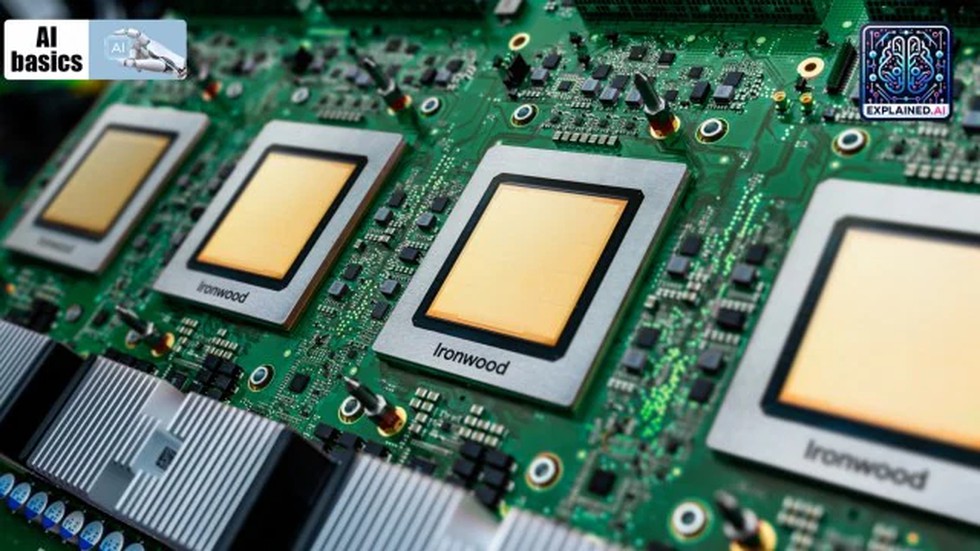
AI Basics: CPU, GPU and TPU

17.04.2025
AI Basics: CPU, GPU and TPU
|
For Prelims: What is a CPU (Central Processing Unit)? What is a GPU (Graphics Processing Unit)? What is a TPU (Tensor Processing Unit)? |
Why in the news?
How TPU is different from CPU and GPU.
What is a CPU (Central Processing Unit)?
- The CPU is a general-purpose processor that was developed in the 1950s and can handle a wide variety of tasks.
- It functions like a conductor in an orchestra, coordinating the operations of all other computer parts like GPUs, disk drives, and memory units.
- A CPU contains cores — individual units that execute instructions. Early CPUs had only one core, but modern CPUs may contain 2 to 16 cores.
- Each core can handle one task at a time, so a CPU’s multitasking capacity depends on the number of cores.
- For everyday users, 2 to 8 cores are usually sufficient, and CPUs are so efficient that users rarely notice that tasks are completed sequentially, not simultaneously.
What is a GPU (Graphics Processing Unit)?
- A GPU is a specialised processor designed to perform many tasks simultaneously, using a technique called parallel processing.
- Unlike CPUs, which process tasks sequentially, GPUs break down complex tasks into thousands or millions of smaller problems, solving them in parallel.
- Modern GPUs contain thousands of cores, making them far more suitable for intensive computational tasks.
- Initially developed for rendering graphics in gaming and animation, GPUs are now widely used in machine learning and artificial intelligence.
- GPUs have evolved into general-purpose parallel processors, making them a key tool in running AI models and handling large data operations.
- However, GPUs have not replaced CPUs, because certain operations are better handled sequentially, which is the strength of CPUs.
What is a TPU (Tensor Processing Unit)?
- A TPU is also a type of ASIC (Application-Specific Integrated Circuit), meaning it is built for a specific function — in this case, AI tasks.
- First introduced by Google in 2015, TPUs are specially designed hardware units built from the ground up to handle machine learning operations.
- TPUs focus on processing tensors — the multidimensional data arrays used in AI model computations.
- They are optimised to run neural networks efficiently, enabling faster training and execution of AI models than GPUs or CPUs.
- For example, training an AI model that may take weeks on a GPU can often be completed in hours using a TPU.
- TPUs are used at the core of Google's major AI services, such as Search, YouTube, and DeepMind's large language models, illustrating their real-world application in high-scale AI infrastructure.
Source: Indian Express
Consider the following statements regarding processors used in computing:
1. CPUs process tasks sequentially and are ideal for general-purpose operations.
2. GPUs excel at parallel processing and are widely used in machine learning tasks.
3. TPUs are specialised Application-Specific Integrated Circuit (ASICs) optimised for neural network computations.
How many of the above statements are correct?
A.Only one
B.Only two
C.All three
D.None
Answer C